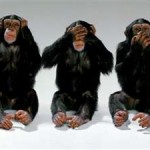
Just as we continue to hear about the benefits of free markets for free men, government investigators and economists on both sides of the Atlantic are expanding their probes into price fixings for gasoline, while economists are trying to develop a methodology to determine how much the LIBOR price fixing scandal has costs consumers and investors worldwide.
On the gasoline front, Bloomberg reports that the Federal Trade Commission has opened an investigation to parallel one being conducted in Europe to determine how crude oil and other petroleum-based products are priced.
Specifically, Bloomberg reported:
“The FTC, which routinely monitors wholesale and retail gasoline prices in the U.S. to look for anti-competitive behavior, agreed with the Justice Department’s antitrust division to handle the probe, said the people. The assignment of the matter to the FTC instead of the Justice Department is an indication that U.S. regulators don’t suspect the conduct they’re scrutinizing is criminal, the people said.”
Investigations Expanding in Europe

But more importantly, this same report said that the anti-trust investigations are expanding into other areas.
“The opening of the oil-price investigation in the U.S. is the latest in a growing number of simultaneous EU-U.S. inquiries into areas including Libor, standard essential patents and Internet search manipulation, as well as merger reviews in the music and airline industries. The extent to which regulators in each jurisdiction can collaborate with one another depends on whether the companies under review sign waivers allowing data about them to be shared.” (“U.S. FTC Said To Open Probe of Oil-Price Fixing After EU,” Bloomberg News, Sara Forden, June 25, 2013)
So the investigators are covering price manipulations in LIBOR, patents, Internet searches, music and airlines. These are key industries which affect billions of people worldwide.
Putting A Cost On LIBOR Price Fixing

Separately, a group of economists and mathematicians are working to calculate the amount investors lost from LIBOR bid rigging (“Economists Tackle Puzzle of LIBOR Price Losses For Investigators,” Keri Geiger, Bloomberg, June 27, 2013) Last year, Barclays, Royal Bank of Scotland, and UBS-AG all agreed to pay penalties over $2.5 billion in penalties for their the involvement.
The mathematicians and economists are trying to determine the losses, Earlier, the Macquarie Group Ltd. said investors could have lost $176 billion and that banks could be forced to repay at ;least half of those losses, Bloomberg reported.
Boys Will Be Boys

Of course anti-trust violations price fixing are not new. They are part of capitalism and as the Robber Barrons discovered, competition is expensive and not profitable, so they divided up the U.S. rail routes into geographic territories and develop their own businesses.
Anti-trust has not been enforced at the federal level for decades, and the government says it does not have the resources to pursue the cases, while citizens say they do not have the political will to do it. This is evident in the government’s paralysis on indicting individuals and institutions which engaged in mortgage fraud which contributed to the 2008 housing crash and resulting global recession.
The net result is that price fixing now seems to be having a greater impact on average citizens than ever before as a result of industry consolidations and near- and regulated monopolies in some industries. Telecommunications and telephones come into mind.
These U.S. and European investigations should generate a treasure trove of new material on how markets really operate. They should also shed new light on “free markets” and the limitations of laissez faire capitalism, especially as some powerful forces continue to push for even more de-regulation in an era when existing regulations are not even enforced. Caveat emptor anyone?










